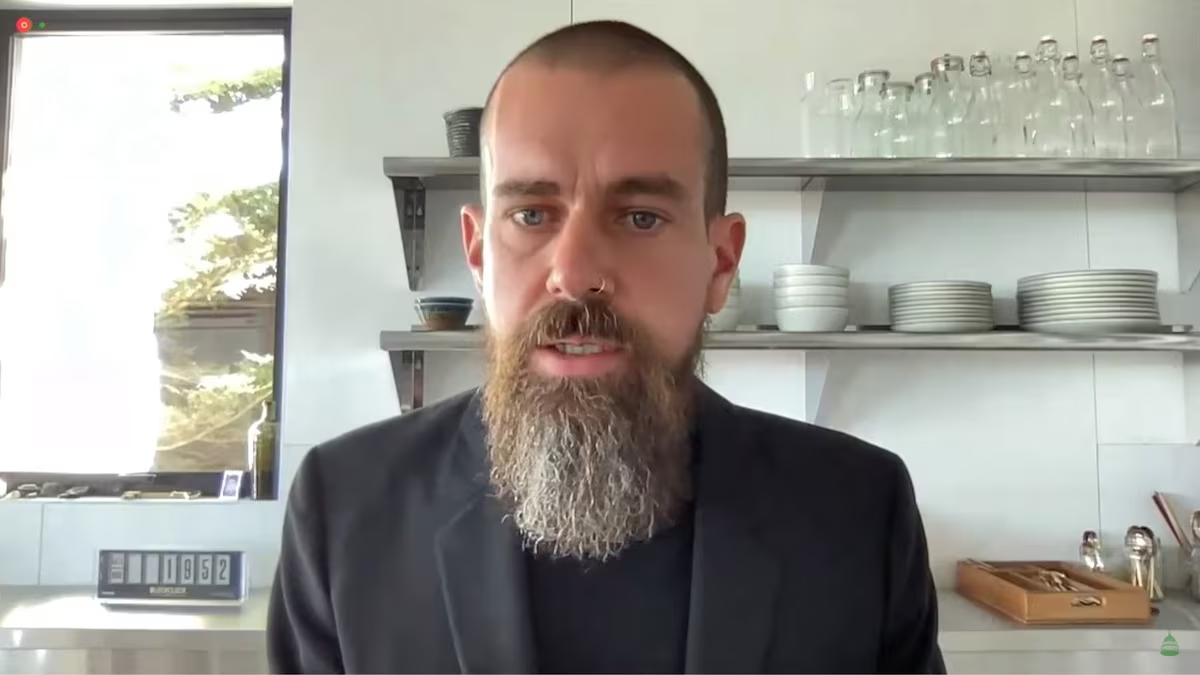
In a stunning reversal that has sent shockwaves through Silicon Valley’s artificial intelligence community, Andrew Tulloch, co-founder of the high-profile AI startup Thinking Machines Lab, has departed the company to join Meta Platforms. The move comes just months after Tulloch famously turned down what could have been a $1.5 billion compensation package from Meta CEO Mark Zuckerberg.
The Departure That Shocked Silicon Valley
The Wall Street Journal first reported on Saturday that Tulloch announced his departure to employees in a message sent on Friday. A spokesperson for Thinking Machines Lab confirmed the news, stating simply that “Andrew has decided to pursue a different path for personal reasons.”
The announcement marks a significant blow to Thinking Machines Lab, the ambitious AI startup co-founded by Mira Murati, OpenAI’s former Chief Technology Officer. The company, which secured a $2 billion seed round and achieved a $12 billion valuation despite not yet releasing a product, has been positioning itself as a major challenger in the foundation model race.
What makes this departure particularly noteworthy is the dramatic shift in Tulloch’s stance. Just months ago, his rejection of Meta’s astronomical offer had become a viral sensation in tech circles, celebrated as a principled stand for independence and mission-driven work over corporate incentives.
A Career Built on Innovation
Tulloch’s journey to the center of AI’s biggest talent war is a testament to his exceptional credentials and contributions to the field. The Australian computer scientist graduated with first-class honours and a University Medal in mathematics from the University of Sydney before earning a master’s degree in Mathematical Statistics from Cambridge and pursuing a PhD at UC Berkeley.
His professional career began at Goldman Sachs, but it was his 11-year tenure at Facebook (now Meta) from 2012 to 2023 that established him as a force in machine learning. During this period, Tulloch played a pivotal role in developing PyTorch, one of the most widely adopted frameworks in AI today. His work on real-time machine learning systems and advertising algorithms helped shape Meta’s core AI infrastructure.
In 2023, Tulloch made the leap to OpenAI, where he contributed to the development of GPT-4’s pretraining and reasoning models. This experience at the forefront of generative AI positioned him perfectly for his next venture: co-founding Thinking Machines Lab with Murati in early 2025.
The Billion-Dollar Offer That Wasn’t Enough—Until Now
The story of Meta’s pursuit of Tulloch reads like a Silicon Valley thriller. According to reports from The Wall Street Journal, Zuckerberg’s aggressive AI recruiting blitz initially included an offer to acquire Thinking Machines Lab outright for approximately $1 billion. When Murati and her co-founders declined, Zuckerberg pivoted to a more targeted approach.
The Meta CEO personally reached out to Tulloch with a compensation package that could have been worth up to $1.5 billion over at least six years, contingent on top bonuses and extraordinary stock performance. At the time, Meta spokesperson Andy Stone disputed the exact figures, calling them “inaccurate and ridiculous,” while noting that total packages depend on stock performance.
Tulloch’s initial rejection of this offer became a defining moment in the AI talent wars. His LinkedIn profile went viral, with screenshots shared widely as a “blueprint” for AI success. Industry observers praised his decision as evidence of a new era in tech, where elite AI researchers prioritize autonomy and scientific freedom over even the most lucrative corporate packages.
Yet something changed. The reasons behind Tulloch’s reversal remain unclear, with the official statement citing only “personal reasons.” Industry insiders speculate about various factors that might have influenced his decision, from changes in Thinking Machines Lab’s direction to new terms in Meta’s offer, or simply a reassessment of where he could have the greatest impact.
Meta’s Relentless Pursuit of AI Dominance

Tulloch’s eventual recruitment is just one piece of Meta’s broader, aggressive strategy to close the gap in advanced AI. OpenAI CEO Sam Altman has publicly stated that Meta has offered some of his employees bonuses of $100 million to recruit them a claim that underscores the astronomical stakes in the AI arms race.
The Wall Street Journal reported that Meta has contacted over 100 OpenAI employees in recent months, successfully hiring at least 10. The company is also actively courting talent from AI spin-offs like Anthropic and, as evidenced by Tulloch’s recruitment, Thinking Machines Lab itself.
This hiring blitz comes at a critical time for Meta. The company’s Llama 4 model received underwhelming reviews, creating pressure to accelerate its AI development. Zuckerberg has responded by creating a new “superintelligence” division and offering some of Silicon Valley’s most lucrative compensation packages to attract top researchers.
The strategy extends beyond individual hires. Meta has been striking deals with startups, investing in AI infrastructure, and positioning itself as a destination where researchers can work on cutting-edge problems with virtually unlimited resources. The recent hiring of Alexandr Wang as Chief AI Officer further signals Meta’s commitment to building a world-class AI organization.
The Thinking Machines Lab Challenge
For Thinking Machines Lab, Tulloch’s departure represents more than just the loss of a co-founder it’s a test of the startup’s resilience and vision. The company was founded with an ambitious mission: to build AI systems that are safer, more interpretable, and more customizable than current offerings, going beyond traditional chatbot interfaces.
Despite not yet releasing a product, Thinking Machines Lab has attracted significant attention and investment. The $2 billion seed round, backed by heavyweight investors including Andreessen Horowitz, Nvidia, AMD, and Google Cloud, valued the company at $12 billion. This extraordinary valuation reflects both the pedigree of its founders and the market’s appetite for alternatives to the current AI giants.
The startup has quietly attracted talent from DeepMind, Anthropic, and OpenAI, signaling its potential to become a major player in the foundation model race. Its core mission developing AI that reflects diverse global needs has created what insiders describe as a “gravitational pull” for talent across the AI world.
However, Meta’s successful recruitment of Tulloch raises questions about the startup’s ability to retain its team in the face of such aggressive poaching. According to Wired magazine, no other Thinking Machines Lab employee had accepted Meta’s offers as of the earlier reports but Tulloch’s move may change that calculus.
The Broader Implications for AI Development
Tulloch’s journey from rejecting to accepting Meta’s offer illuminates several important trends in the AI industry. First, it demonstrates the extraordinary value that major tech companies place on top AI talent. When a single researcher can command a potential $1.5 billion package, it’s clear that we’re in unprecedented territory for technical hiring.
Second, it highlights the tension between startup independence and corporate resources. While startups like Thinking Machines Lab offer the appeal of building something new and mission-driven, companies like Meta can provide access to computational resources, data, and infrastructure that are difficult for startups to match.
Third, the situation underscores the consolidation risk in AI development. If the largest tech companies can simply recruit away the key talent from promising startups, it becomes harder for new entrants to challenge the established players. This has implications for innovation, competition, and the diversity of approaches to AI development.
What’s Next for Tulloch and Meta?
While the specifics of Tulloch’s role at Meta haven’t been publicly disclosed, his background suggests he’ll likely work on core AI infrastructure and model development within Zuckerberg’s superintelligence division. His experience with PyTorch, GPT-4, and his work at Thinking Machines Lab make him ideally suited to tackle some of Meta’s most challenging AI problems.
For Meta, Tulloch’s recruitment represents a significant win in the talent wars, even if it took longer than initially hoped. His expertise in machine learning systems, combined with his recent experience at the cutting edge of generative AI, could help Meta close the gap with competitors like OpenAI and Google.
The move also sends a message to the broader AI community: despite the appeal of startup independence, Meta remains a formidable destination for top talent, willing to deploy enormous resources to build the best team possible.
The Human Element
Beyond the headlines about billion-dollar offers and corporate strategy, Tulloch’s story is ultimately about a person making difficult career decisions in an industry moving at breakneck speed. The official statement citing “personal reasons” for his departure reminds us that even in the midst of Silicon Valley’s biggest talent war, individual circumstances, values, and priorities matter.
Whether Tulloch’s decision represents a pragmatic choice about where he can have the greatest impact, a response to personal circumstances, or simply a change of heart about the best path forward, it’s a reminder that the humans behind the AI revolution face complex choices that can’t be reduced to simple narratives about money or mission.
Conclusion

Andrew Tulloch’s move from Thinking Machines Lab to Meta marks a significant chapter in the ongoing battle for AI supremacy. His journey from Meta to OpenAI to co-founding a startup, rejecting a historic offer, and ultimately returning to Meta encapsulates the complexity and dynamism of the current AI landscape.
As the AI arms race intensifies, the competition for top talent will only grow fiercer. Tulloch’s story won’t be the last time we see dramatic reversals, astronomical offers, and difficult choices at the intersection of innovation, independence, and corporate power.
For now, Meta has secured one of the industry’s most sought-after researchers. Thinking Machines Lab must regroup and demonstrate its resilience. And the rest of Silicon Valley watches closely, knowing that the next chapter in this saga is already being written.
Sources
- Thinking Machines Lab co-founder Andrew Tulloch heads to Meta | TechCrunch
- Thinking Machines Lab co-founder Tulloch departs for Meta, WSJ reports – CNA
- Thinking Machines Lab co-founder Tulloch departs for Meta, WSJ reports | Yahoo Finance
- Who is Andrew Tulloch? Meet the man who rejected Mark Zuckerberg’s $1.5b job offer | Gulf News
- Who Is Andrew Tulloch? The AI Expert Who Turned Down Meta’s $1.5 Billion Offer | News18
- Thinking Machines Lab co-founder Tulloch departs for Meta, WSJ reports | Reuters









Comments 1